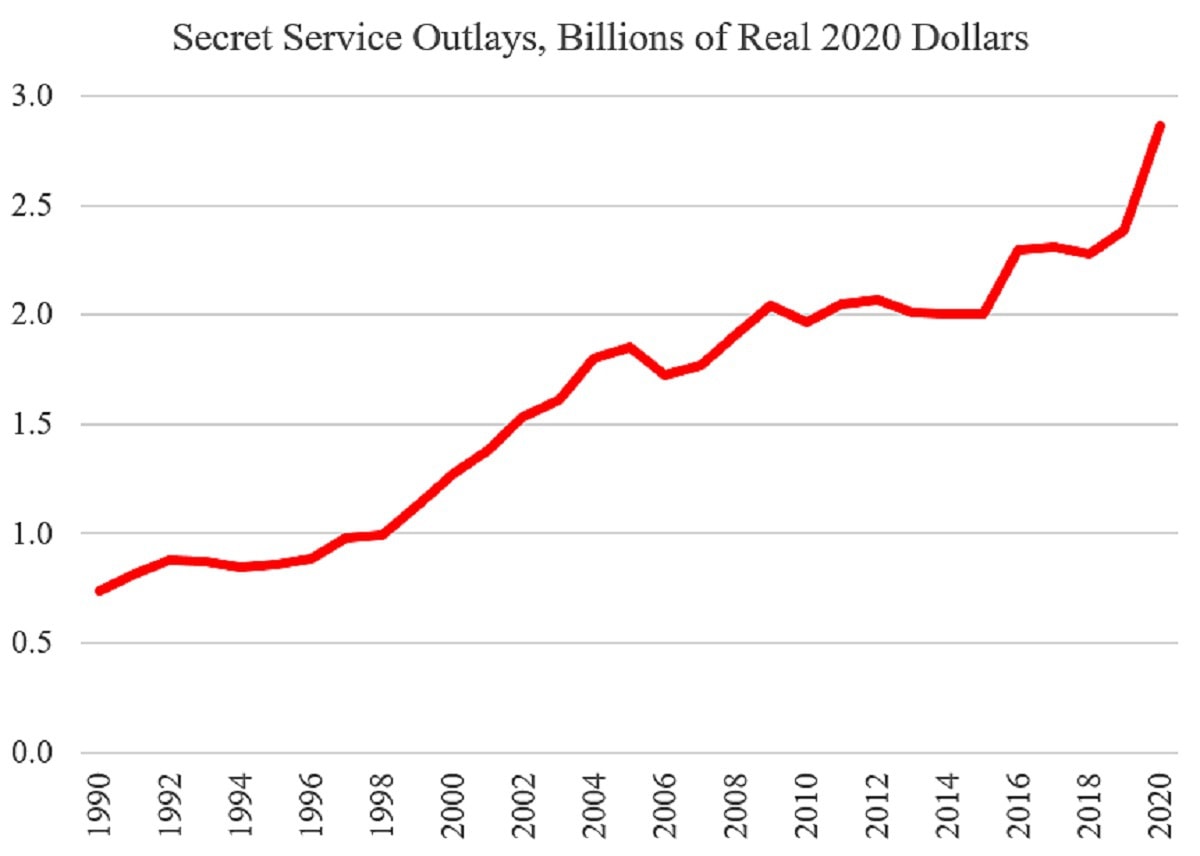In the Wall Street Journal, Peggy Noonan reviews Carol Leonnig’s book, Zero Fail, about the history and performance of the Secret Service. The federal agency has suffered from epic failures and scandals in recent years.
Secret Service management has been dreadful and burying the agency within the sprawling new Department of Homeland Security in 2002 probably made things worse, as Noonan suggests. Indeed, I think that the DHS superstructure should be abolished as an excessive layer of counterproductive bureaucracy.
Where Noonan and Leonnig appear to go wrong is assuming that the Secret Service budget has been shortchanged.
- Noonan says—based on Leonnig’s findings—that the agency has been “weakened by bad leadership, underfunding, an insular culture and declining professionalism.”
- Noonan claims that the agency “was always underfunded.”
- Noonan recounts: “In 2011 Julia Pierson, who would become the first female director, told the Office of Management and Budget her agency was ‘bankrupt.’ Budget cuts led to understaffing and waves of uniformed‐officer resignations.”
The statements about “underfunding” and “budget cuts” could have used some factchecking. Secret Service spending and employment have soared since 1990. Spending did flatline for a while in real terms a decade ago, but that was after a large increase in the prior decade.
The chart below shows the agency’s spending in 2020 constant dollars. Real Secret Service spending increased from $0.74 billion in 1990, to $1.27 billion in 2000, to $1.96 billion in 2010, to an estimated $2.86 billion in 2020.
Secret Service civilian employment increased from 5,760 in 2002 to 7,669 in 2019, which is a 33 percent jump. This recent article suggests that the Secret Service is continuing to ramp up its employee count.
Finally, note that the agency failures Noonan highlights have nothing to do with funding levels anyway. For example, wild partying by Secret Service agents caused a major scandal on a 2012 presidential trip to Columbia. And in 2014, Omar Gonzalez took 29 seconds to make “his way from a public sidewalk to inside the White House. He had gotten directly past eight trained security professionals on a compound staffed with 154 men and women.”
Chris Edwards is the director of tax policy studies at Cato and editor of DownsizingGovernment.org. He is a top expert on federal and state tax and budget issues. Before joining Cato, Edwards was a senior economist on the congressional Joint Economic Committee, a manager with PricewaterhouseCoopers, and an economist with the Tax Foundation.

